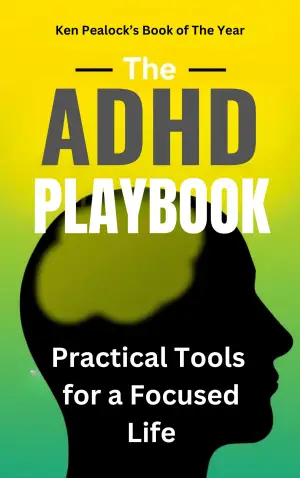Exploring the Parenting Wisdom of Ancient Cultures Through "Hunt, Gather, Parent"
Dr. Michaeleen Doucleff’s Hunt, Gather, Parent: What Ancient Cultures Can Teach Us About Raising Children grabbed my attention the moment I read about her transformative journey as a frustrated San Francisco mother facing daily challenges, not the least of which was receiving an unwelcome slap in the face from her three-year-old, Rosie. As someone navigating the ups and downs of parenting, I found myself drawn to Doucleff’s unique quest to connect with "Hunter Gatherer" moms across the globe—from the Mayans to the Inuit—looking for solutions that veered off the well-trodden path of modern parenting advice.
At its heart, Doucleff’s book unfolds an invitation to look beyond our consumer-driven Western parenting practices. She summarizes her findings with the engaging acronym "TEAM": Togetherness, Encourage-never-force, Autonomy, and Minimal Interference. Each principle, infused with insights derived from Doucleff’s cross-cultural experiences, offers practical and meaningful ways to foster deeper connections with our kids.
The concept of "Togetherness," for instance, resonated profoundly with me. Watching how Mayan children participate in everyday tasks as integral family members made me rethink my own approach to chores at home. Including my kids in cooking or even cleaning doesn’t just ease my workload; it fosters their sense of belonging and responsibility. How refreshing to learn that children don’t need elaborate activities; they thrive in the rhythm of life’s daily demands.
The advocacy for autonomy was another standout point. Doucleff’s reflections on minimizing parental bossiness struck a chord. With my own tendency to micromanage, the idea that autonomy helps children flourish while still feeling connected to their family was liberating. It’s a subtle shift in perspective—empowering rather than commanding. I couldn’t help but recall countless mornings spent repeating commands, and felt inspired to ask more questions instead.
Doucleff’s narrative style is refreshing, blending heartfelt anecdotes with solid research and personal reflections. Her voice feels like a trusted friend sharing insights over coffee, rather than an expert lecturing from a distant pedestal. I appreciated her humor, especially when recounting moments of cultural contrast that made me nod in recognition—or laughter.
Of course, the book isn’t without its critics. Some argue that Doucleff’s reliance on a limited sample of cultures and her own lens as an educated white woman leaves gaps in the broader conversation about parenting. Yet, I found her personal narrative enriching, offering a relatable backdrop to the diverse lessons she shares. Despite some concerns, her case studies illuminate the vast potential for growth when we challenge prevailing assumptions about parenting.
As I closed the final pages of Hunt, Gather, Parent, I felt both inspired and reflective. This book isn’t just about parenting techniques; it’s an exploration of cultural wisdom that encourages us to rethink how we view our relationships with our children. Whether you’re a new parent or a seasoned pro, Doucleff’s insights offer a breath of fresh air, reminding us that sometimes, less really is more.
For those yearning for a different approach to parenting or simply seeking a fascinating read that intertwines anthropology with everyday life, this book is for you. I walked away not just with parenting tips but with a renewed sense of purpose and connection to my own family, and I suspect many readers might find the same.
Discover more about Hunt, Gather, Parent: What Ancient Cultures Can Teach U… on GoodReads >>















